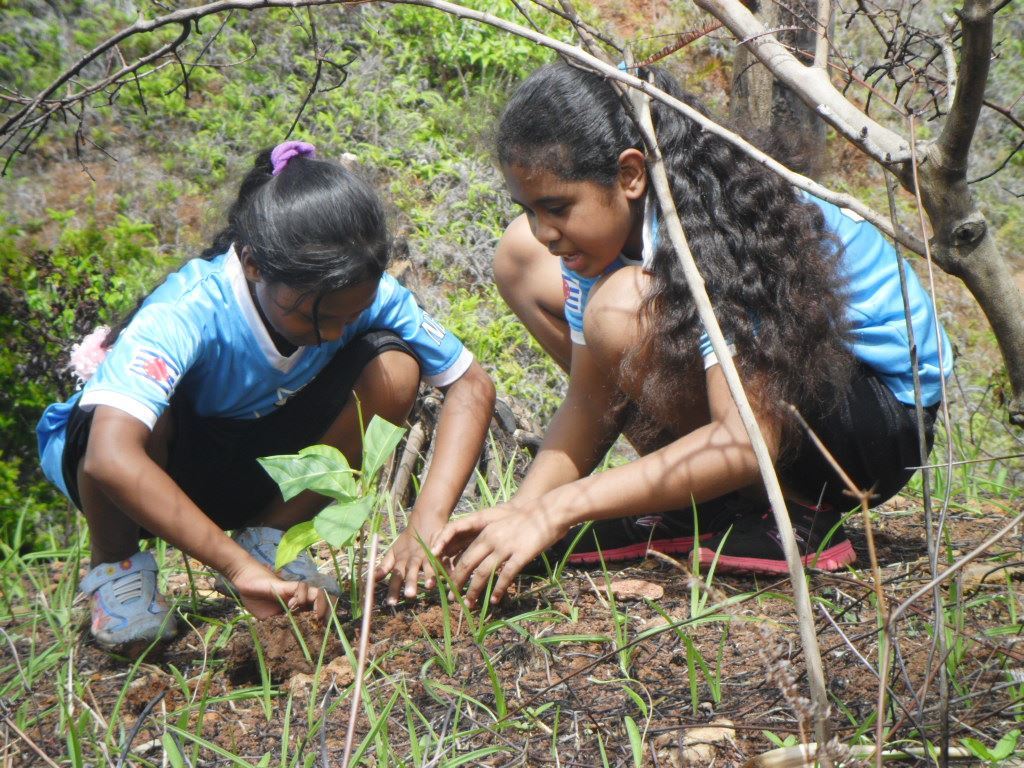Goal
- Develop a pedagogical approach for using intangible cultural heritage to raise awareness about sustainable development.
Description
This pilot project took place in seventeen schools across four countries: Pakistan, Palau, Uzbekistan and Viet Nam. Its aim was to develop a pedagogical framework for educators to use intangible cultural heritage to raise awareness about sustainable development by enhancing the teaching of existing subjects such as math, science, language arts and social studies.
The project began with the assembling of national teams of experts from the education and culture sectors who closely collaborated with institutional partners and community stakeholders throughout the project. Next, the teams researched local intangible cultural heritage (ICH), drawing both from secondary sources and living knowledge bearers within the schools’ local communities. They then mapped their respective national curricula to identify existing subject areas and learning outcomes. Finally, the teams developed lesson plans following the ‘triangulation method’, which fully integrates the ICH practice, the academic subject matter and the education for sustainable development (ESD) principle. For instance, a lesson plan may use local weaving practices to teach geometry while also addressing the principle of sustainable livelihoods. These lesson plans were tested in classrooms to evaluate their feasibility for educators, accuracy in conveying cultural knowledge and their effectiveness for student comprehension.
The project’s final publication, ‘Learning with Intangible Heritage for a Sustainable Future: Guidelines for Educators in the Asia-Pacific Region’, presents the project’s rationale and methodology in an accessible and adaptable manner so that other educators and curriculum developers can implement the model in their own schools throughout the region. The guidelines can also be used by teacher training programs and cultural organizations to build teachers’ capacity to undertake similar activities. The project’s focus on mapping existing educational subjects meant that curricular reform was not necessary to implement its pedagogical method. That said, coordinating a multi-sectoral team that included experts on the national curriculum, local ICH and UNESCO ESD principles was necessary for its success.
Resources developed
Pakistan
- Resource kit: modules & lesson plans for promoting intangible cultural heritage for educators to reinforce education for sustainable development (Pakistan)
- Sample chemistry lesson plan incorporating truck art/painting
- Sample chemistry lesson plan incorporating folk music and rhythm
- Sample social studies lesson plan incorporating traditional craftsmanship/social practices
- Sample history lesson plan incorporating calligraphy
- Sample language lesson plan incorporating traditional poetry
Palau
- A guideline for writing an intangible cultural heritage lesson plan (Palau)
- Sample Palaun studies lesson plan incorporating a social interactions code
Uzbekistan
- Sample music lesson plan incorporating a traditional folk song
- Sample physical education lesson plan incorporating a traditional folk game
Viet Nam
- Instructions on preparing a curricular lesson plan with integration of intangible cultural heritage (Viet Nam)
- Sample physics lesson plan incorporating Muong traditional music
- Sample biology lesson plan incorporating shell inlay craftsmanship
Outputs
- A set of adaptable guidelines for teachers, teacher-educators, teacher education institutions, curriculum development professionals and cultural organizations.
- Over 100 sample lesson plans for teachers.
- Model classes filmed and shared on YouTube.
The content of the projects and documents referenced in this platform do not imply the expression of any opinion whatsoever on the part of UNESCO, including designations employed concerning the legal status of any country, territory, city or area or of its authorities or concerning the delimitation of its frontiers or boundaries.
